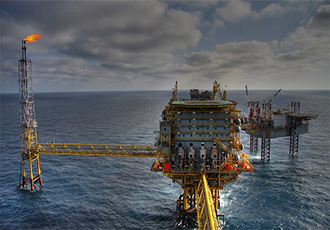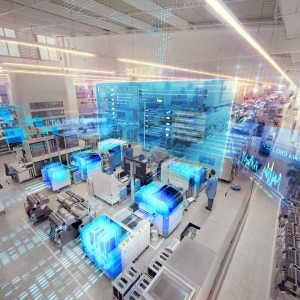What does digitilisation mean for engineering?

The digital age has changed every single industry – in terms of the nature of the work as well as the way we work - and engineering is no different. The most significant impact for this profession has actually been seen in the oil and gas industry.
Oil and gas companies were pioneers of the first digital age in the 1980s and 1990s, using 3D seismic, linear program modelling of refineries and advanced process controls for operations.
However, technology is ever-changing and evolving at such a pace that companies must adapt to keep up. So, in response to recent technological advancements, oil executives must consider further digital technologies because these have the potential to further boost performance and productivity at the same time as reducing costs.
This will affect those working in the industry as well as the industry as a whole – most significantly during study and training. Currently there are a variety of ways to get into this role in this industry - many enter with a degree, primarily in science and engineering.
However, as technology only continues to grow, it has been advised that engineering students looking for oil jobs should study a computer science course. Not in place of, but as well as an engineering course, because this will help them to better adopt and apply digitalisation – and therefore advance in their career.
Digitalisation is already occurring in this sector, although this is affecting different companies at varying speeds, with many still struggling with how much they can afford and how it will work best for them. Some are even worried that digitalisation may see them being replaced – although this has been denied by many in the industry.
However, in general it is picking up pace across the oil and gas sector and being able to keep up with this side of the job will stand engineers in good stead going forward. In fact, the engineering profession within oil and gas will benefit the most from digitalisation – they will be able to spend less time looking for data and routine activities can be automated, leaving them time to do the more critical and hands-on tasks.
Once upon a time an engineer was stuck at a desk searching through hundreds of journal articles and technical documents to find the right data for their project – then making decisions without being able to collaborate with colleagues. Now they can work on-site with all the information they could possibly need right at their fingertips.
Speaking about digitalisation over the past year, GE Oil & Gas’ Global Head of Digital Products Binu Mathew, said: “It has become more and more pronounced and I think it also has to do with the fact that the industry has been in a bit of a downturn for the last couple of years. When you have oil prices at $100 or above, there’s enough money coming in that you don’t really need to worry about that as much, but if we’re going to be in a sustained phase where oil prices fluctuate, then the importance of operational efficiency that you can get with digital becomes very, very important.”
Similar articles
More from Electronic Specifier
- Building the case for construction offices in 2021 20th May 2021
- UK construction: is the industry finally on the up? 26th August 2020
- Speaking to a younger generation of women in tech 11th August 2020
- Engineering firms encouraged to get ‘2020’ vision 6th January 2020












Write a comment
No comments